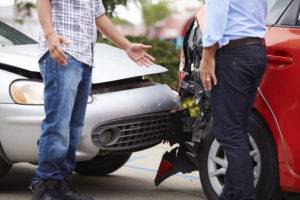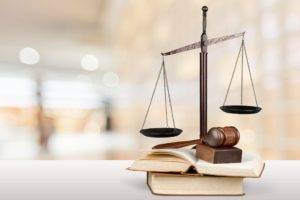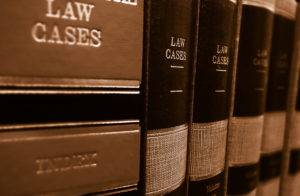Most settlements for motorcycle accident victims fall between $10,000 to $250,000 although cases of catastrophic injuries often settle for over $1 million.
On the individual level, motorcycle accident settlements vary widely. The dollar amounts depend heavily on the extent of a person’s injuries and presence of long-term disability. Long hospital stays and rehabilitation periods drive up costs. Lost income enters the equation as well. In severe cases, the impact of pain and suffering and a family’s loss of consortium add to the settlement. The amount of available insurance coverage may act as a limiting factor on collecting damages.
Average Settlement Amounts for Motorcycle Accidents in Florida
The actual insurance settlement amounts for people hurt in motorcycle crashes are not often made public because they result from private, out-of-court insurance claims and negotiations. However, jury awards for the accidents cases that go to court are a matter of public record.
Either way, according to the Motorcycle Legal Foundation, adequate compensation should include all current and future medical costs related to the crash, lost income, future income in cases of disability, and possibly pain and suffering.
Need free legal help in Florida?
We specialize in personal injury claims.

Motorcycle Crash Settlement Examples
Personal injury law firms sometimes publish news about settlements that they won through negotiations or trial verdicts.
Some examples are:
$445,000 for motorcyclist hit by 18-wheeler.
$300,000 for motorcyclist struck by passenger vehicle.
$3.9 million for motorcyclist dragged under dump truck.
$350,000 for motorcyclist hit by passenger vehicle.
Factors Influencing Motorcycle Accident Settlement Amounts in Florida
The variability in the amount of insurance settlements or jury awards arises from the multiple factors used to calculate damages. The immediate and long-term financial impacts depend on how much medical treatment is needed and the effects on future income. Whether the injured person bore any responsibility for causing the accident also influences the final amount.
Liability
Liability describes the obligation to pay for damages. A no-fault insurance policy may pay up to policy limits. Liability also arises from fault due to someone’s negligence. According to Florida Statute Chapter 768, Section 81, both the plaintiff (accident victim) and defendant could share fault for what happened, which is known as comparative fault.
If the defendant is 100% responsible, then the accident victim has a right to collect 100% of the financial losses. However, the law reduces a settlement according to how much responsibility the defendant had. If the accident victim was 25% at fault, then the settlement must reduce the payout of damages by 25%. Should evidence prove that the defendant was more than 50% at fault, then the defendant has no right to a financial settlement from the other party. According to HB 837, this rule became effective on effective March 24, 2023.
Injuries Sustained
This phrase identifies physical harm that has resulted directly from the accident.
Medical Expenses Incurred
Something that is “incurred” is a consequence of an action or event. In a personal injury context, motorcycle accident injuries produce medical bills for treatment and rehabilitation. These medical expenses have been incurred because of the crash.
Lost Income
Lost income that results from a motorcycle accident can inflict immediate financial hardship on an injured person. As a result, the length of time that a person is unable to earn income affects how much to ask for in a settlement.
Pain and Suffering
Florida personal injury law recognizes pain and suffering as damages worthy of compensation. According to the Cornell Law School Legal Information Institute, pain and suffering represent a form of noneconomic damages because no tangible document describes their financial cost. The concept of pain and suffering includes physical pain, emotional trauma, and anguish.
Insurance Coverage Limits
Insurance coverage limits often impose an upper limit on what an accident victim can collect.
As a no-fault auto insurance state, Florida’s motorists carry personal injury protection (PIP) insurance coverage that pays for medical care no matter who caused the crash. However, the insurance requirements differ for motorcyclists. They technically do not have to buy insurance to register their motorcycles and operate them if they wear an appropriate helmet. Only motorcyclists age 21 and over who do not wear helmets must buy at least $10,000 in PIP according to Florida Statute Chapter 316, Section 211.
Accidents caused by people other than the motorcyclist allow the injured people to seek compensation from the insurance of the at-fault or negligent party. A successful claim against the negligent party enables recovery of compensation up to the coverage limits on the negligent person’s policy.
Contributory Negligence
According to Florida Statute Chapter 768, Section 81, contributory negligence or “fault” reduces the amount of recoverable damages that an injured person can collect in proportion to the percentage of blame assigned for the accident.
Witnesses and Evidence
Motorcycle accidents are chaotic events that happen in seconds. For this reason, the amount of available physical evidence and witness testimony varies from case to case. An accident case backed up by witness statements and physical evidence that paint a clear picture of what happened and who was at fault can result in a larger settlement than when evidence is lacking or ambiguous.
Legal Arguments
A successful legal argument depends on proving negligence. According to Florida Statute Chapter 768, Section 81, a “negligence action” means to seek damages based on the theory of negligence.
A legal argument must present information that fits the four legal elements of negligence. The first element is known as “duty of care.” In other words, individuals and organizations have a social responsibility to act in ways that avoid hurting others.
Negligence emerges when someone commits a “breach of duty,” the second element. This means that the individual did not demonstrate proper care or concern for the safety of others.
The third element to be proven is “causation” or that the failure to act with proper care caused harm, such as a motorcycle crash. The fourth and final element is the “damages.” The evidence must illustrate that damages arose directly from the negligent actions leading to the accident.
Role of Fault and Liability in Determining Settlement Amounts
Obtaining a sizable settlement that reflects actual costs becomes more likely in the presence of sufficient evidence. A motorcycle injury case in which evidence clearly supports the assignment of fault and liability to the defendant leaves little room for the defendant’s insurer to argue against paying a settlement. This is why it is so crucial for accident victims to gather as much evidence as possible.
However, when evidence fails to produce a clear conclusion about who should pay, a settlement will be low. Too many unresolved issues linger for the injured person to continue arguing for more money. At times, a lack of evidence can result in no settlement whatsoever due to an inability to illustrate fault and liability.
When fault is split, the injured person’s settlement will be reduced to reflect the victim’s partial fault for the accident.
As a no-fault insurance state, an injured motorcyclist who has personal injury protection (PIP) does not have to prove who was at fault. The insurer is supposed to pay for damages up to the coverage limit. Even so, an insurer may still strive to negotiate a low settlement if it is difficult to link injuries to the accident.
Impact of Injuries and Medical Bills on Settlements
Medical bills for injuries are classified as economic damages. Medical expenses include almost all health care bills, including emergency care, hospitalization, surgeries, medication, outpatient visits, physical therapy, and more.
Settlements for serious injuries are higher than settlements for minor injuries because they require more care and produce higher medical bills.
Importance of Legal Representation in Negotiating Settlements
Personal injury attorneys possess in-depth knowledge of all types of damages that an injured person has a right to collect. This knowledge can increase a settlement simply because the lawyer knows what to ask for.
Additionally, lawyers have training and experience with negotiations. The skills that an attorney brings to the table can result in a higher settlement than an individual could negotiate independently.
Importance of Seeking Fair Compensation for Damages
The temptation to accept a settlement offer quickly without a full understanding of the long-term costs or limitations on future earnings could lead to ongoing hardships.
The financial losses caused by motorcycle injuries can have a lingering impact on a person’s life. The ongoing expenses for medical treatment or rehabilitation can be difficult to calculate in the first weeks or months after a crash.
Importance of Working with a Motorcycle Accident Attorney
Motorcycle accident attorneys provide services that relieve injured people of significant administrative burdens during a time of physical and mental duress. Attorneys have the resources to collect evidence and consult experts to build a thorough insurance claim or lawsuit.
Benefits of Having Legal Representation for Accident Settlements
In general, attorneys succeed at collecting higher settlements than would be possible without their support. Few people have advanced knowledge of how to deal with the medical, insurance, and legal systems prior to suffering injuries. With legal representation, injured people get independent advice that helps them understand their rights and options before making important decisions.
Role of Attorneys in Advocating for Fair Settlements
Personal injury lawyers perform several critical functions, starting with meeting reporting and filing deadlines for insurance claims or lawsuits. They organize documentation about medical expenses and lost income so that no recoverable expense goes unclaimed. Their ability to collect evidence supporting accusations of fault and liability aids them in pushing back against insurers’ attempts to devalue accident claims.
Understanding the Legal Process for Motorcycle Accident Claims
Motorcycle accident claims start by looking at the evidence to establish who is obligated to pay. After collecting evidence and documenting injuries and expenses, insurance claims are the first step. Negotiations typically start at this point to arrive at a final settlement. In some contested cases, the legal process means going to court where a judge or jury decide the outcome.
What to Do If You’re Involved in a Motorcycle Accident in Florida
Seek Medical Attention
Anyone hurt in a motorcycle accident must get a medical evaluation and treatment within 14 days. In addition to protecting people’s health, this step is essential because medical records associated with the accident must be present to justify a claim for damages.
Report the Accident
When death or personal injury occurs, local law enforcement should receive notice of the accident within 10 days of the crash. According to Florida Statute Chapter 316, Section 066, the Florida Traffic Crash Report, Long Form must be sent to the law enforcement department where the crash occurred.
According to Florida Highway Safety and Motor Vehicles, people can self report accidents with its form if police did not respond to the accident scene.
Document the Scene
Taking photographs of the place where the accident happened along with images of property damage and injuries provides important evidence for determining fault and liability.
Get Witness Info
Contact information collected from witnesses allows an injured person or an attorney to follow up and gather statements about what happened.
Notify Your Insurer
People hurt in a crash must inform their insurers about the accident. According to Florida Statute Chapter 627, Section 736, people have a 14-day deadline to contact their insurers to qualify for personal injury protection (PIP) benefits.
Consult an Attorney
A consultation with an attorney as soon as possible is an important step, especially when people have bad injuries and expect to suffer high financial damages. An attorney’s evaluation and accident investigation may clear up uncertainties about who was at fault and what insurance coverage is available to cover expenses.
Keep Records
Injured people need to preserve all records and receipts for medical bills and related expenses. The insurance and legal systems do not want to authorize payments without proof that the claims are genuine. A daily diary, either written or recorded, is a useful tool for tracking medical treatment and progress toward recovery. Insurance claims and lawsuits rely on documentation to describe expenses and physical and emotional suffering.
Need free legal help in Florida?
We specialize in personal injury claims.

Frequently Asked Questions
What to do after a motorcycle accident in Florida
People should call 911 for first responder assistance and medical care. All parties need to exchange contact and insurance information, but it is important to never make a statement accepting fault to police or anyone else. If possible, take pictures of the accident scene and vehicles involved. Insurers must be informed, and it is recommended that injured people discuss their options with an attorney.
What is the average payout for a motorcycle accident in Texas?
A specific average amount is not available due to the many factors that impact the value of a settlement. Typical cases range from the low five figures to the middle six figures with the occasional catastrophic accident producing a multi-million-dollar payout.
What is the average payout for a motorcycle accident in New York?
As in other states, settlements differ greatly from case to case, staring at around $10,000 and rising into the millions for extreme cases of injury, suffering, or death.
How much do lawyers take from settlement in Florida?
Personal injury lawyers collect money contingent on winning a settlement or verdict. This amount is 33.33% of the settlement for cases up to $1 million according to the Florida Bar.
Does Florida pay for pain and suffering?
Yes. According to Florida Statute Chapter 627, Section 737, compensation is allowed for pain and suffering in the event of serious impairment or loss of an important bodily function, disfigurement, permanent injury, or death.
How long does it take to recover from a serious motorcycle accident?
Some motorcycle accidents leave victims with permanent disabilities or chronic pain. Other people may recover from less serious injuries in weeks, months, or years.
What happens to a motorcycle after an accident?
Serious damage or an insurer’s decision to total the motorcycle will result in its loss. However, dents, cracks, or other minor issues may be repairable.
What happens to your body in a motorcycle accident?
According to the organization Motorcycles Data, motorcyclists have a high risk of blunt force trauma, lacerations, road rash, and burns. Impacts with vehicles or flying through the air and hitting the road or other objects subjects accident victims to broken bones, torn soft tissue, loss of limbs, and skin tearing.
What percentage of motorcycle accidents are caused by the rider?
According to the Sun-Sentinel, research conducted by Florida Department of Transportation stated that about 40% of multiple vehicle crashes involving a motorcycle were the fault of the motorcyclists. According to the National Highway Transportation Safety Administration, fault arises from passenger vehicles in the majority of motorcycle accidents involving two or more vehicles.
How rare are motorcycle accidents?
Motorcycle accidents are not rare. According to Florida Highway Safety and Motor Vehicles, the state recorded 8,649 motorcycle accidents in 2021.
Motorcycle crash settlement examples
$445,000 for motorcyclist hit by 18-wheeler.
$300,000 for motorcyclist struck by passenger vehicle.
$3.9 million for motorcyclist dragged under a dump truck.
$350,000 for motorcyclist hit by passenger vehicle.
Need free legal help in Florida?
We specialize in personal injury claims.






